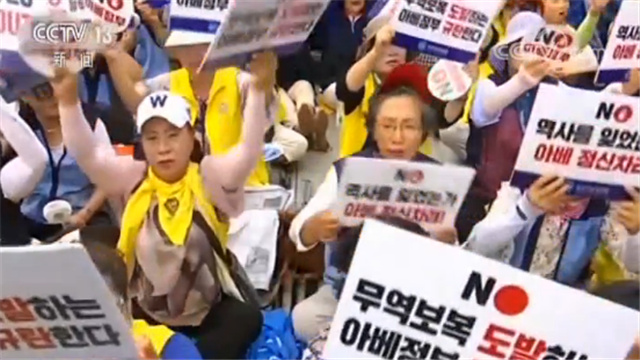"Fighting" protests! Japanese brands exposed anti-Korean remarks were boycotted by Korean consumers.
Cctv newsRecently, Japan and South Korea have successively removed each other from their list of countries with preferential export procedures, that is, the "white list" of trade, and both sides have reacted strongly to this. On the 13th, hundreds of South Koreans gathered in downtown Seoul to hold a protest against the Japanese Abe government’s economic retaliation against South Korea.

Japanese brands exposed anti-Korean remarks were boycotted by Korean consumers.
A new round of confrontation between the two countries based on social media is also intensifying. In the satellite TV channel program run by DHC, a famous Japanese cosmetics brand, a guest threw out remarks that despised South Korea’s anti-Japanese activities and distorted history, which triggered angry condemnation from the Korean people. On the 12th, this program, which is at the forefront, invited Japanese right-wing politician and Liberal Democratic Party member Aoyama Fanqing.
Such remarks ignited the anger of the Korean people. Large cosmetic circulation enterprises in Korea have decided to take Japanese DHC cosmetics off the shelves or stop selling them.
Korea and Japan moved out of the "white list" of trade with each other.
The Japanese government strengthened trade control with South Korea in July, and at the beginning of this month, it moved South Korea out of the "white list" that can enjoy preferential export procedures, which triggered South Korea’s counter-measures. On the 12th, the South Korean government announced that Japan would also be removed from the "white list" of trade.